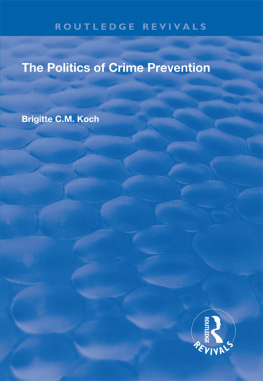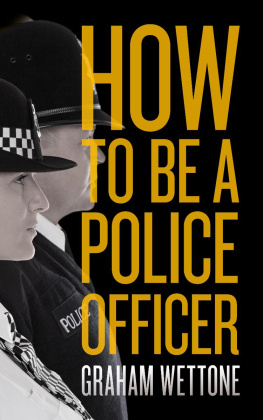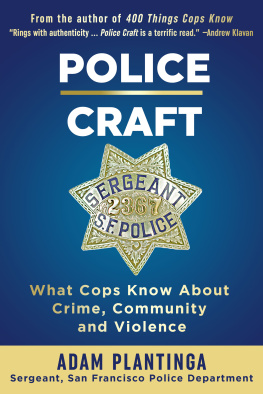First published in Great Britain in 2016 by
Policy Press University of Bristol 1-9 Old Park Hill Bristol BS2 8BB UK Tel +44 (0)117 954 5940 e-mail
North American office: Policy Press c/o The University of Chicago Press 1427 East 60th Street Chicago, IL 60637, USA t: +1 773 702 7700 f: +1 773-702-9756 e:
Policy Press 2016
British Library Cataloguing in Publication Data
A catalogue record for this book is available from the British Library
Library of Congress Cataloging-in-Publication Data
A catalog record for this book has been requested
ISBN 978-1-4473-2069-2 hardcover
ISBN 978-1-4473-2070-8 paperback
ISBN 978-1-4473-2073-9 ePub
ISBN 978-1-4473-2074-6 Mobi
The right of Bryn Caless and Jane Owens to be identified as authors of this work has been asserted by them in accordance with the Copyright, Designs and Patents Act 1988.
All rights reserved: no part of this publication may be reproduced, stored in a retrieval system, or transmitted in any form or by any means, electronic, mechanical, photocopying, recording, or otherwise without the prior permission of Policy Press.
The statements and opinions contained within this publication are solely those of the authors and not of the University of Bristol or Policy Press. The University of Bristol and Policy Press disclaim responsibility for any injury to persons or property resulting from any material published in this publication.
Policy Press works to counter discrimination on grounds of gender, race,
disability, age and sexuality.
Cover design by Hayes Design
Front cover image: www.alamy.com
Readers Guide
This book has been optimised for PDA.
Tables may have been presented to accommodate this devices limitations.
Image presentation is limited by this devices limitations.
Bryn Caless would like to dedicate this book to Daphne Caless, ne Mayall, 19382015, who sadly died during its making.
Jane Owens would like to dedicate this book to Gareth Owens and to all young people starting out on their careers.
Policing has a plethora of terms and abbreviations which are familiar only to the insider (and the poor academic who has to study them); the PCC has added a few more. The following is a selection of these terms explained.
ACPO
The Association of Chief Police Officers, now defunct. It acted as the spokesperson for the police at a national level and dealt with government departments and committees such as the Home Affairs Select Committee. ACPO was replaced in April 2015 by the National Police Chiefs Council (NPCC).
APCC
The Association of Police and Crime Commissioners acts as a national level spokesperson for the Commissioners, organises an annual conference and maintains a website on PCC and policing issues
Chief Constable, Deputy Chief Constable, Assistant Chief Constable
These are chief police officer ranks (London is different) that hold strategic command of police forces in the UK.
Assistant Chief Constables
(ACC) usually hold specific portfolios for areas such as Territorial Policing (local and community), Serious and Organised Crime and Support Services. Terms vary from force to force.
Deputy Chief Constables
(DCC) stand in for the Chief, and often hold remits for force disciplinary and professional standards.
Chief Constables
(CC) are the heads of police forces. They are appointed (and can be dismissed) by the PCC; and their term of service, like most of their subordinate chief officers, is a renewable five-year contract.
College of Policing
The College of Policing was officially launched in February 2013 to replace the National Policing Improvement Agency (NPIA). The College regards itself as the professional body for policing and states that it will provide maximum support to help the service implement [...] standards (College of Policing, 2015). It has largely supplanted the ACPO function and has begun to develop a role in the formulation of strategic policing. It has made encouraging noises about commissioning research too.
CSP
Community Safety Partnership(s). Under the 1998 Crime & Disorder Act, local authorities-led crime reduction and disorder partnerships which included the police, fire and rescue, primary healthcare and the police authority, with other public service participation as needed. PCCs have since replaced the police authorities and much of the current PCC partnership-building and, while not intending to undermine CSPs, will eventually make them redundant
European Working Time Directive
This gives EU workers the right to a break of at least 11 hours in any 24; controls excessive work at night; and provides a right to work no more than 48 hours per week. It was first established in the early 1990s and updated in 2003 (see 2003/88/EC; and the UK governments www.gov.uk/maximum-weekly-working-hours/overview). Given the excessive hours worked by PCCs, including into late evening, the Directive is merely advisory; see Chapter Seven.
HASC
Home Affairs Select Committee; a powerful cross-party committee of the House of Commons chaired by Keith Vaz MP, it enquires into domestic matters and has a reputation for robust questioning.
HMIC
Her Majestys Inspectorate of Constabulary; the inspection system for policing composed of Home Secretary appointments drawn from the civil service, the police and other organisations. The current Chief Inspector, Sir Thomas Winsor, was formerly a railway lawyer and is the first non-police officer since the nineteenth century to be appointed to the post.
HO
Home Office, the department of state responsible for the police, the UK Border Agency, the Security Service (MI5), and, astonishingly, British Summer Time.
HS
The Home Secretary, the Cabinet-rank senior politician who heads up the Home Office, since 2010 it has been the Rt. Hon. Theresa May MP.
IPCC
Independent Police Complaints Commission; a national body charged with investigation of complaints against the police, deaths in the custody of the police, and serious misconduct. Since 2013, IPCC has the remit to investigate complaints of criminal behaviour by PCCs, but has no other watchdog function for commissioners.
MOPAC
In London, the Mayors Office for Policing and Crime, headed by the Deputy Mayor who is the de facto Police and Crime Commissioner.
NPCC
The National Police Chiefs Council that, in April 2015, replaced ACPO; it is intended to be a national voice for strategic policing but many of ACPOs functions in this respect have passed to the national College of Policing.
OPCC
The Office of the Police and Crime Commissioner: the staff that support the work of each PCC. Numbers vary, but statutorily must include a Chief Executive Officer (CEO) and a separate Finance Director. Some PCCs have deputies, others do not. There is usually a small administration team drawn normally from police headquarters staff, and retained specialists such as media advisers and diarists.
Police authorities (PAs)
Police authorities existed from 1964 until 2012. They were composed of (up to 9) elected councillors appointed to the authority and (up to 8) appointees, making 17 authority members in most police forces. Usually part time and unsalaried, their role was to hold the police to account and oversee the police budget. In practice, PAs were often ineffectual and some were manipulated by unscrupulous chief officers (Caless, 2011), and were criticised by HMIC and the Home Office because they were unchallenging and invisible. Few members of the public even knew the PA existed, let alone who its members were. They were replaced in November 2012 by Police and Crime Commissioners, but some PA members went on to become members of the PCP.








